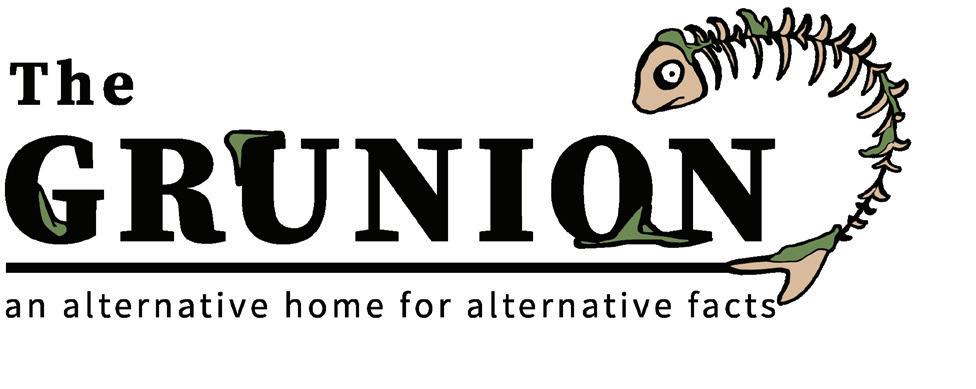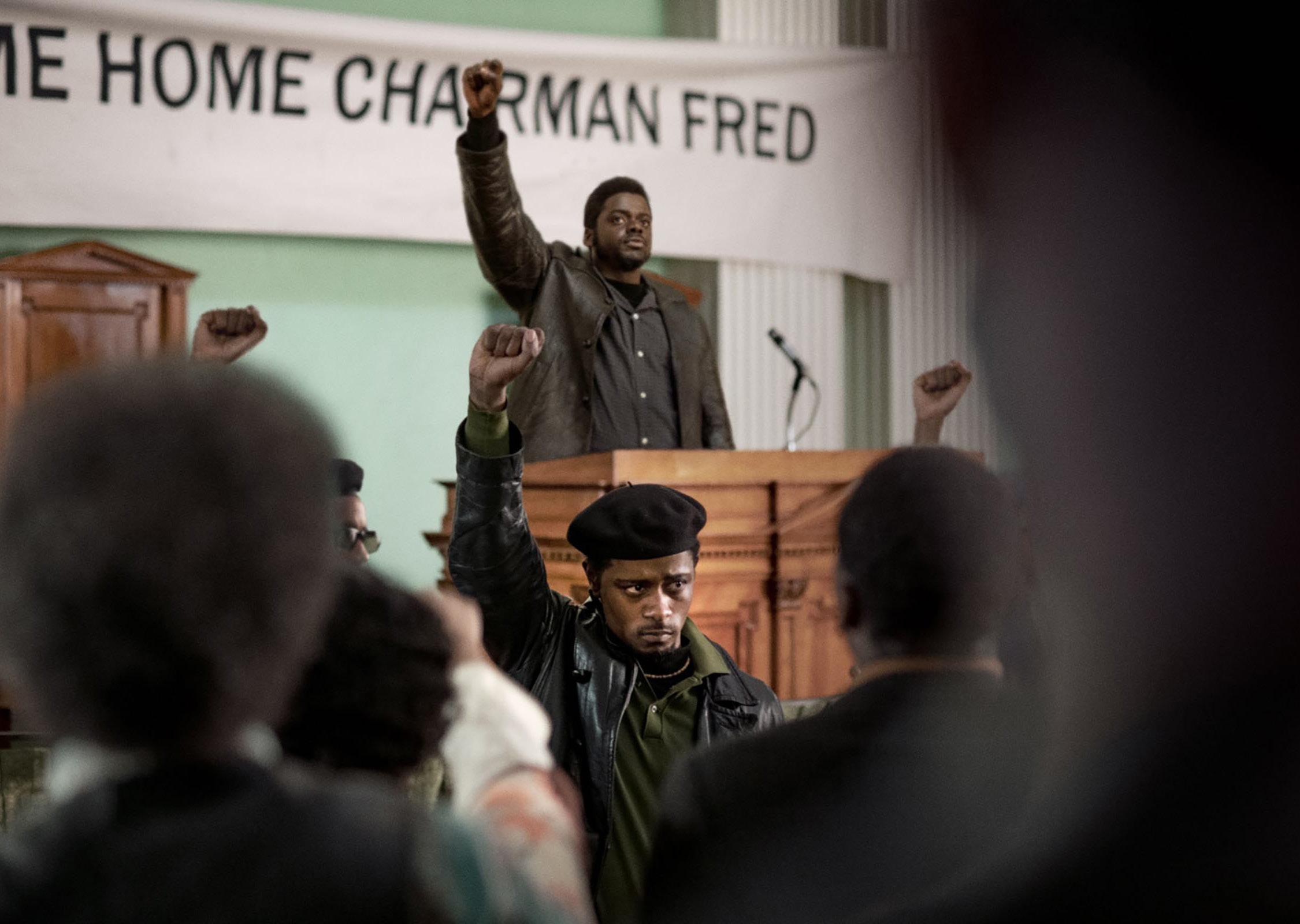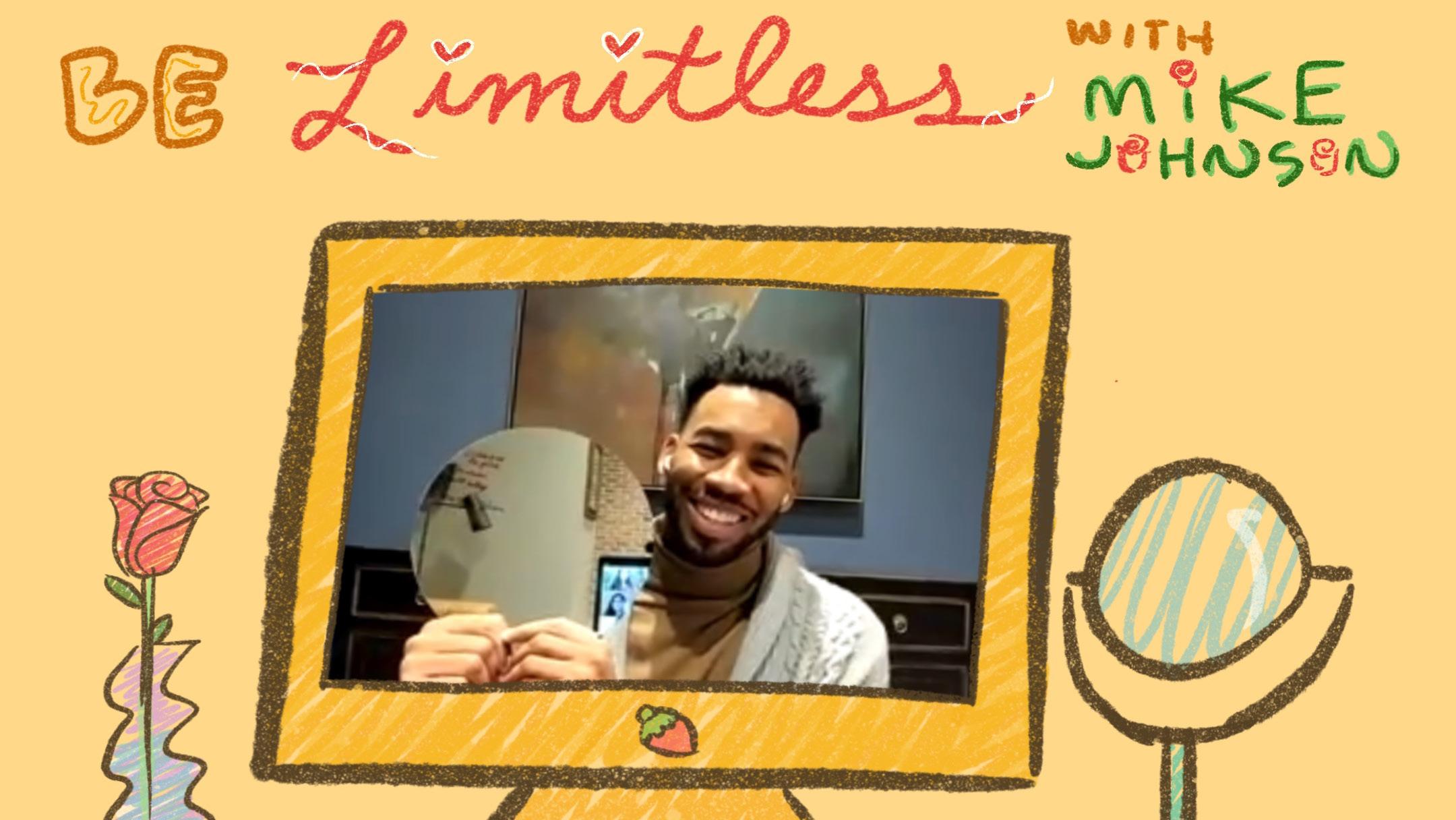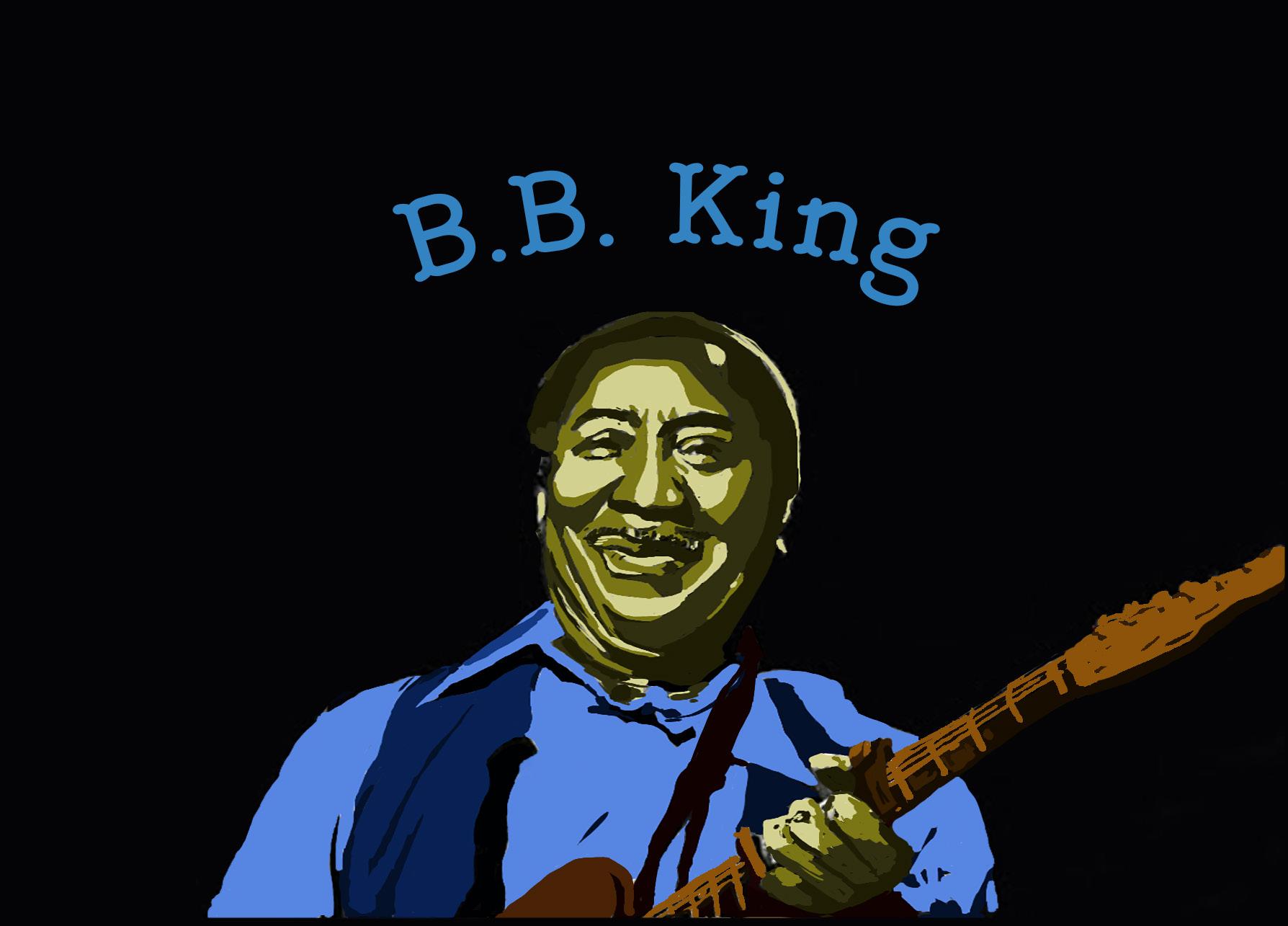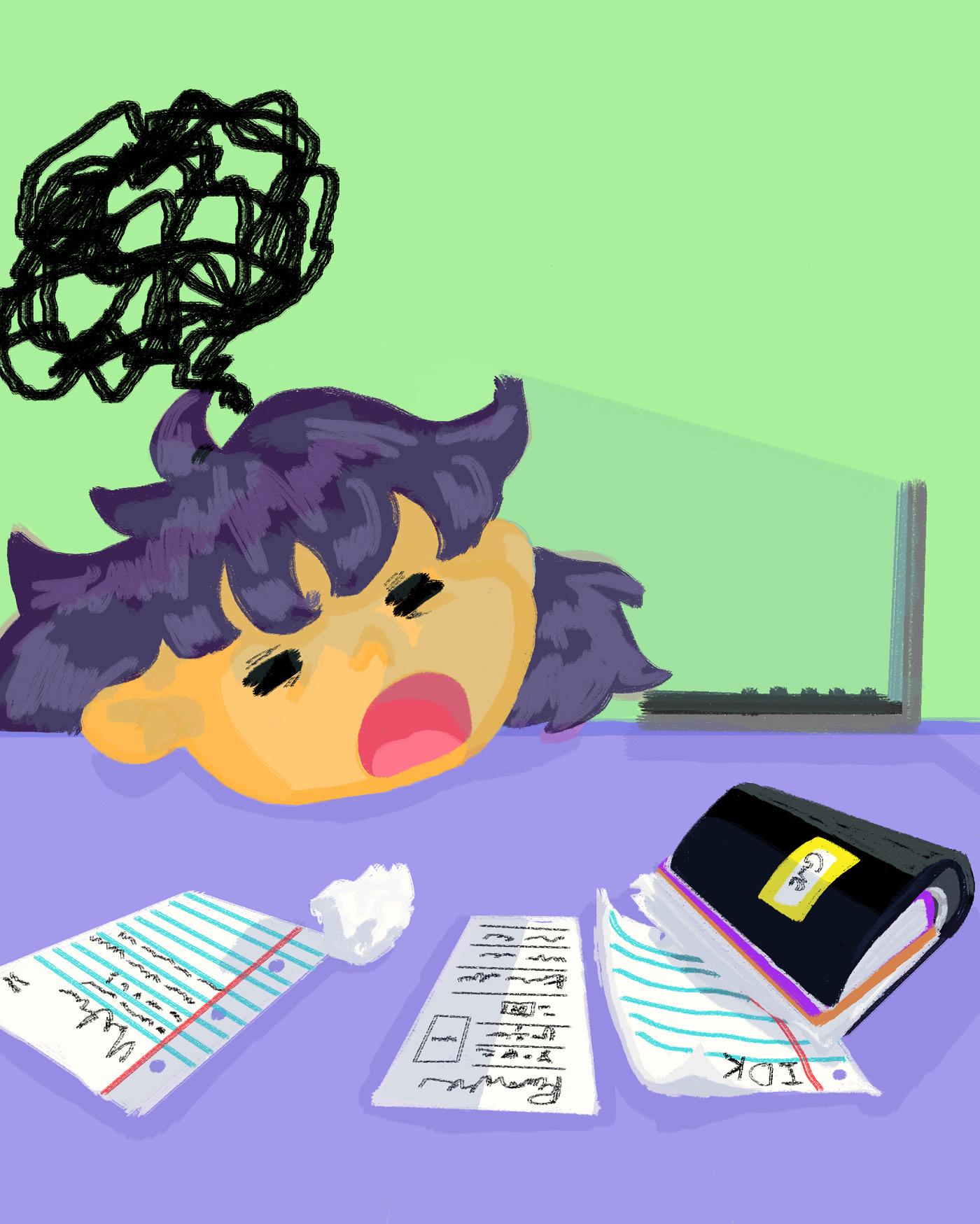
7 minute read
We're Here, We're Queer
Students share how they're adjusting to life as a part of the Queer community.
It may be hard to picture now, but we were all on campus this time last year. There were tree-lined walkways, overflowing parking lots, and pandemoniums of parrots. Then everything was upended when it became clear we were no longer safe together. So much of student life has shifted since then, particularly for those of us in the Queer community. In the yearlong wake of online school, the following students share their personal experiences navigating the peaks and valleys of digital Queer connectivity, family homes, and self-perception.
Interviews by Abigail Rollins
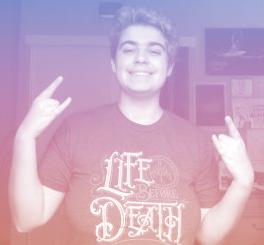
Olivia Jones
Olivia Jones, She/Her
First Year, English Education
In what ways has student life changed for you since last March?
I was looking forward to moving out and the classic college experience of finding yourself and becoming your own person. But now I'm still living with my parents. I'm not out [and] they're kind of homophobic, so that's been difficult. I'm not a completely different person when I'm with them, but there are definitely parts of myself that I hide because I think they won't be approving. I prioritize openness and honesty [but] I kind of have to live with that right now.
How have you found connecting to fellow Queer students throughout this time?
I went to one of those Zoom events that was specifically for Queer students, the Queers and Allies club, and that's how I got onto their Discord. We do game nights where we play party games, or have voice calls and talk to each other for a while. That sense of community is really valuable, especially for Queer people to know that there are other people that we can rely on who are like us. Even though I'm not on campus, I feel like I'm not missing out as much because I still get to make friends in college. I'm having the college experience in the best way that I can.
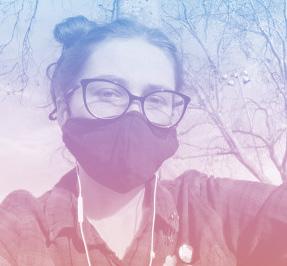
Cait Johnson
Cait Johnson, They / She
Fourth Year, Creative Writing
How has your self-perception shifted since last spring?
My confidence took a hit when I moved back home. Before I moved back, I could dress and act however I wanted because my parents weren't looking over me. I felt more freedom in that, but when I moved, I realized that I was overcompensating a lot before.
I was expressing myself in the way that I thought that others wanted me to. For months, I just had no sense of self. I would look in the mirror and I didn't even recognize my own self. I was so confused at that point. That definitely came from not needing to express myself in front of people as much.
Having reshaped those things that make up your identity, what do you think they look like now?
I hadn’t really considered who I was and what makes me, ‘me,’ for a long time. In quarantine I had to figure stuff out, so I picked up film photography. I started writing more and making more art. As I did that, I realized, ‘I know who I am. I'm Cait and I'm an artist.’ I'm exploring my gender identity, or lack of, which has been really freeing. I identify so much with being bisexual and being demisexual now, but back then there were always those moments of questioning, if I’m actually a lesbian, straight, asexual, and trying to figure it all out. I am bisexual and I am demisexual. I've learned to trust my instincts on my own identity.

Drew Love
Drew Love, They / Them
Third Year, Psychology
How have you connected with fellow Queer students throughout this time?
I went to a high school with one of the people on the Queers and Allies club board. We ended up reconnecting and we started this tabletop RPG, and that's when I realized a lot of stuff about gender identity and sexuality. The majority of us in the group were trans and/or non binary, and all of us were Queer. It was really good because I only had maybe three queer friends before that.
How do you feel your identity is being reflected back to you in general right now?
In online school and on Discord, I get to introduce myself as Drew, they/them. They see me as my authentic self before hearing my voice or seeing my face [and] it's nice to know when people are addressing me, they're actually seeing what I want them to see, not what they think I am.
With quarantine, I've read, watched YouTube videos, and been getting into writing again. I've also been into knitting. It does have something to do with my gender identity because I spent the first two years of college not exploring anything. I think all of this has helped redefine who I am.
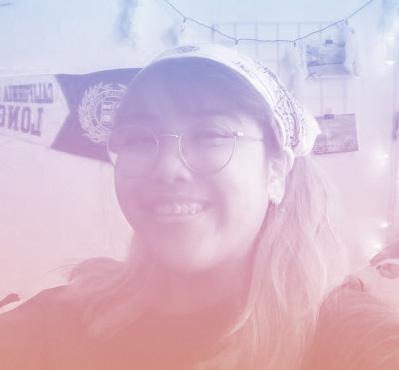
Kaitlyn Oribiana
Kaitlyn Oribiana, They / She
Fourth Year, English Literature
How has quarantine impacted how you see yourself, if at all?
In quarantine, I spent so many nights not sleeping and asking myself what it is I actually like. Eventually this year I realized, I’d rather not identify as a girl anymore [and] I feel comfortable with they/them. I used to worry about this back in high school because maybe it's just a trend to be non-binary. But, no, I don't think it's a trend. This is who I am.
How do you feel your identity is being reflected back to you at this time?
I used to really perform as that girlfriend persona, [but] now I’m in a new relationship. We reference each other as ‘partner’ and both identify as nonbinary. It’s been really validating and comforting for both of us. I never feel pressured to get dolled up and wear dresses. I don't feel pressured to be a girl, I can just focus on loving a significant other. When I work there are people who still perceive me as a girl and use she/her pronouns. It’s fine because I'm just playing the role of cashier and they have to reference me somehow. I’m not sure if I want to use she/her or they/them pronouns specifically, that’s something I am still figuring out for myself.
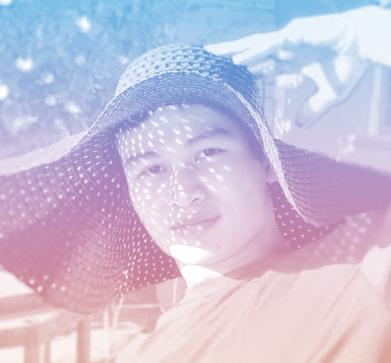
Dan Dao
Dan Dao, He / Him
Second Year, Mechanical Engineering
How have you managed the shift into online communication with fellow Queer individuals?
I don't know how romantic relationships are going to go and that’s okay. I enjoy one-on-one conversations with people [and] I wasn't interested in going through that whole dating app route. I’m just a little old fashioned. My style of conversation has been hindered by quarantine, as there's a lot more avenues of communication happening all the time. It’s tough to keep up with a bunch of texts. In person, I do get a little anxious interacting with people, but it's always fun to talk with different people and see what their quirks are.
How do you feel your identity is being reflected back to you throughout this time?
I made a YouTube channel. It's public [but] they’re mostly for myself. I've realized that validation through social media is ultimately a balance. As a creator, you can fall into this mindset of like, "Wow that person has more followers, they must be more important," or even try to underplay all that by thinking of followers as just mindless bots. The way people are on social media isn't very comprehensive of human behavior and the way people act in real life. That’s important to keep in mind. Being comfortable with your own life is most important. I don’t think my identity is affirmed by my digital presence [but] before the digital transition my identity was separate from my online persona.
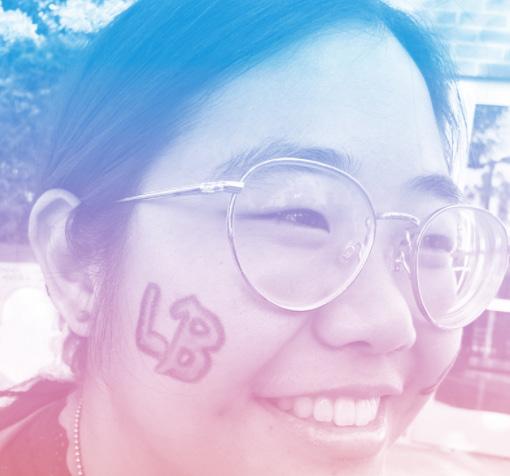
Jireh Deng
Jireh Deng, They / She
Third Year, Applied Math, Minor in Creative Writing
How have you experienced the shift from student life on campus to student life at home?
If it hadn’t been for this pandemic, I might have just left the nest without addressing any of these problems at home [but] it's allowed my parents to realize how much I've grown in the two years I've been at college.
How would you describe your present sense of community?
There are a lot of complications when your family loves you and sacrifices so much for you, but that can also be the root of trauma for you. We should protect our elders, but also hold them accountable. [They] need to be educated, but it needs to be acknowledged that when you're moving to another country with a new language, you're going to stick with what you know. They've never been in these spaces like we are now, talking about how gender is different from assigned sex, how presentation is different from that, and how people's pronouns matter. It's a very different thing than straight up being hateful and choosing to be ignorant. So, what do we have to do as Queers is learn from our backgrounds, give to our communities, and uplift other people.

